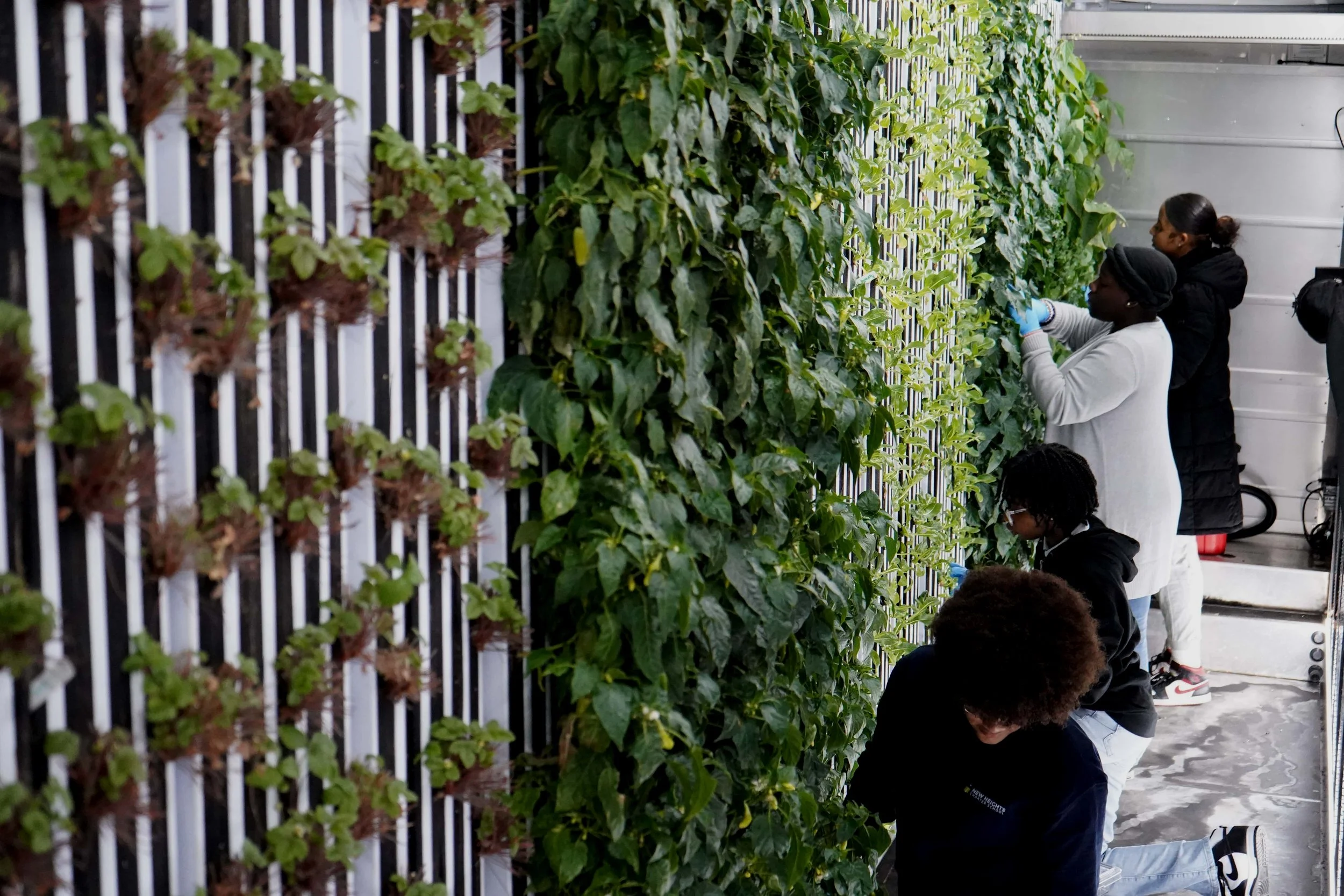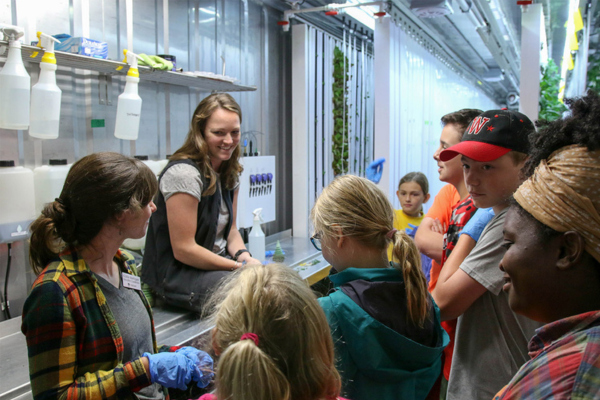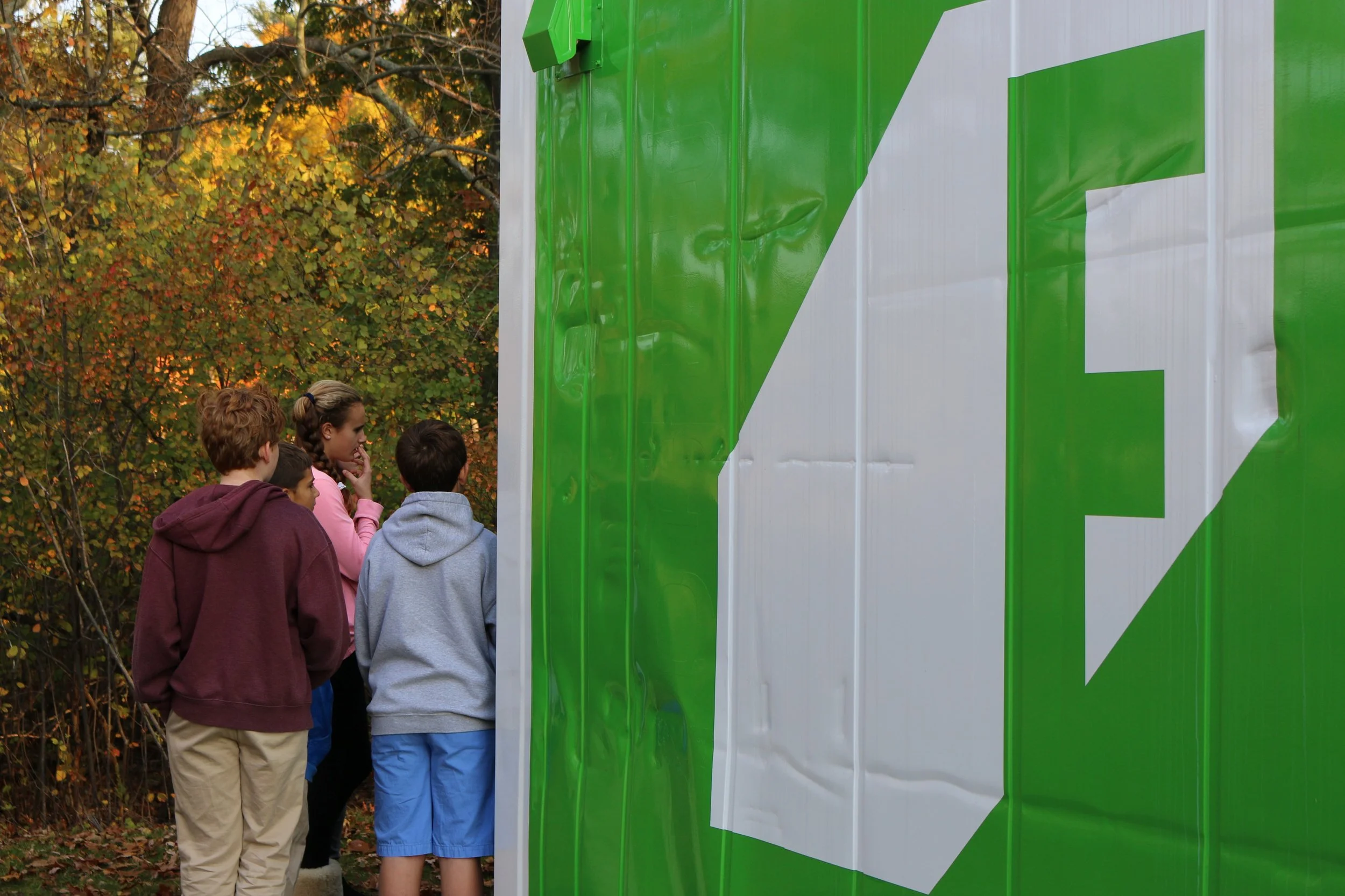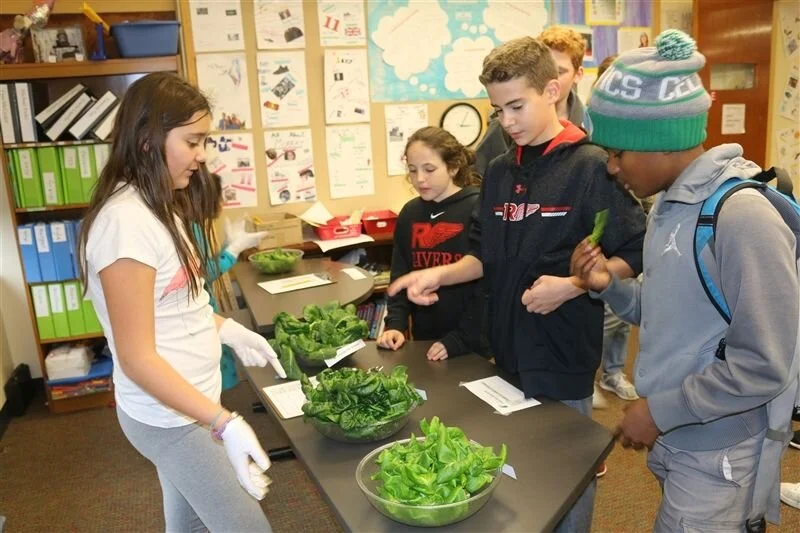Hydroponic container farms are transforming classrooms into dynamic environments for social emotional learning (SEL). Learn how these innovative tools cultivate essential life skills while growing fresh produce.
Read MoreDiscover how container farms are revolutionizing STEM education by providing hands-on learning in botany, physics, chemistry, and more. Prepare students for the future with innovative, sustainable farming systems.
Read MoreDiscover 16 compelling reasons to start container farming today! From becoming your own boss and contributing to your community, to growing fresh, local produce year-round, container farming offers personal, financial, and environmental benefits.
Read MoreSchools across the country are finding innovative ways to make their Freight Farms more functional and educational for students. By customizing the interior and exterior, schools can turn these farms into engaging spaces for hands-on learning, science projects, and sustainability initiatives.
Read MoreWhether looking to supply sustainable food, jumpstart modern agriculture curriculums, encourage student engagement, or simply grow the best greens around, universities around the country are relying on hydroponic container farms to create impactful farm to campus programs.
Read MoreAt Freight Farms, we work with campuses to integrate hydroponic produce into dining services and school curricula. Read on as we explore the ways a vertical farm can transform your campus.
Read MoreWe’re proud that so many schools use our hydroponic farming technology for their farm to school program. From California to Massachusetts, Freight Farms are put to work to achieve each of the pillars of farm to school: local food sourcing; student access to healthy food; and learning opportunities. In this blog, we explore each.
Read MoreFreight Farms had the pleasure of exhibiting at three education-focused events, each providing a unique platform to connect with educational decision-makers. Our mission was to share the benefits of vertical farming, showcasing how a container farm can serve not just as a food source for the school and/or community, but as a dynamic classroom for various courses, research, and STEM opportunities.
Read MoreOne of the most promising advancements in campus dining is the incorporation of hydroponics. This method offers numerous benefits, including improved sustainability, enhanced food security, and fresher, more nutritious produce.
Read MoreBy integrating crops grown in container farms, universities can revolutionize their dining hall menus with fresh, local produce year-round.
Read MoreOne of the most promising advancements in campus dining is the incorporation of hydroponics. This method offers numerous benefits, including improved sustainability, enhanced food security, and fresher, more nutritious produce.
Read MoreBy integrating Freight Farms into the K-12 curriculum, schools can address multiple educational and environmental objectives, fostering a hands-on learning experience that aligns with modern educational standards.
Read MoreIn this article, we examine the effectiveness of Freight Farms and traditional school gardens in K-12 settings and analyze their benefits, challenges, and impact on educational environments.
Read MoreIn this article, we explore how PTAs and Booster Clubs can successfully fund a Freight Farm, providing students with a cutting-edge learning tool that pushes the boundaries of traditional classroom education.
Read MoreK-12 schools can effectively leverage community partnerships and corporate sponsorships to fund the purchase of a Freight Farm and enhance their educational offerings.
Read MoreThrough crowdfunding platforms, K-12 schools can secure the necessary funds to bring a Freight Farm to their students, providing invaluable educational experiences beyond traditional classroom settings.
Read MoreIt’s crucial to recognize the potential of hydroponics in classroom settings beyond just science experiments. Hydroponic farming allows students to explore a variety of academic paths, such as science, technology, nutrition, environmental studies, and much more.
Read MoreBy integrating hydroponic farms, schools can reduce their environmental impact, provide fresh, local produce to their communities, and offer hands-on learning opportunities for students.
Read MoreAs universities worldwide are increasingly adopting sustainability initiatives, this article compares Freight Farms and traditional greenhouse gardens to determine which method of growing food is more suitable for universities based on technology, efficiency, cost, and educational value.
Read MoreUrban farming, traditionally seen as a method to combat food deserts and promote sustainability in city landscapes, has rooted itself within a novel environment: the educational sector. This integration of agriculture into daily learning activities is not merely about planting seeds but about sowing the fundamentals of science, responsibility, and teamwork among young learners.
Read More




















